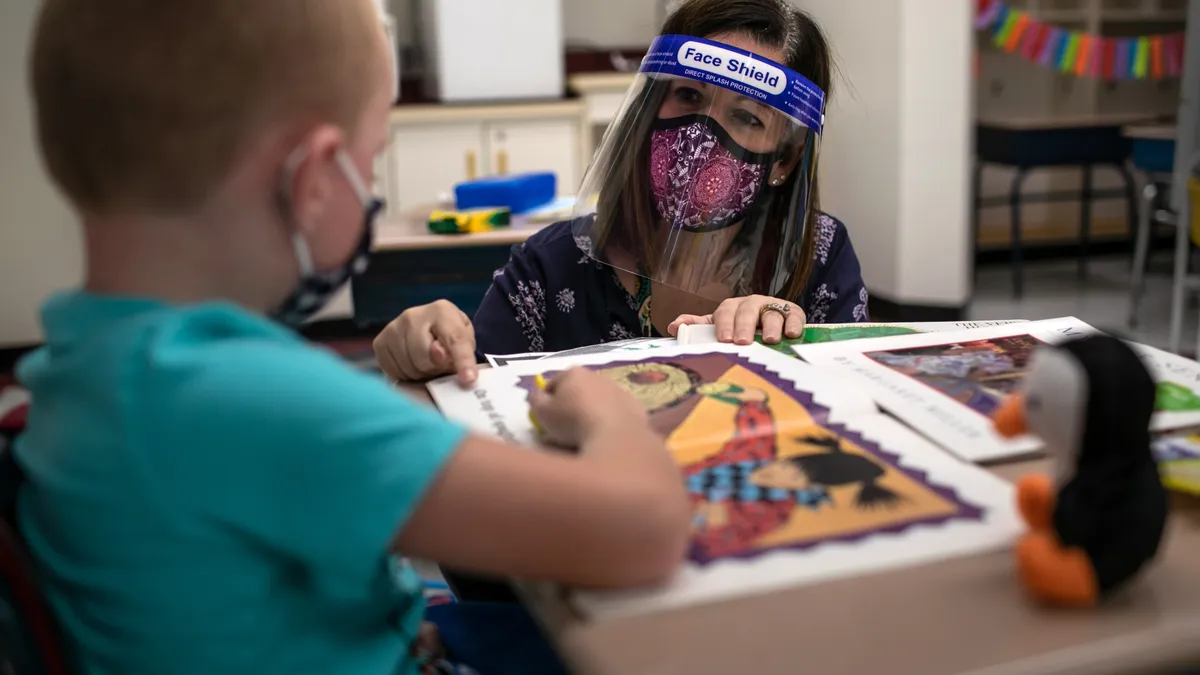Dive Brief:
- A 2019 update to Colorado’s READ Act made changes that pushed districts to pick state-approved literacy material — and the move appears to be working in terms of boosting the quality of materials, according to the Fordham Institute. Data indicates 63% of local districts are using reading curricula from state-approved programs this year, up from about two in five districts doing so in the 2020-21 school year.
- Success can be attributed to several factors, including legislation that detailed science-backed tools and competencies like phonics that must be offered to young students, as well as requiring demonstration of more in-depth literacy knowledge in teacher preparation programs, according to Fordham. Members of the State Board of Education also publicly pressed literacy as a high priority.
- The Fordham Institute also cites pressure from parents, alarmed at how few of their children were reading at grade level, as forcing more transparency from districts about classroom programs. News stories have also brought more focus to early childhood literacy, including coverage focused on literacy instruction in Colorado’s elementary schools.
Dive Insight:
Several states have enacted laws designed to boost literacy in recent years. Alabama and Michigan are two states, for example, that now require learners to read at grade level before they can start 4th grade.
Other efforts, including those in Colorado, focus on more rigorous teacher prep or emphasize the adoption of science-based reading instruction. There is a push on this at the district level, too, with New York City’s new schools chancellor, David Banks, recently proposing a plan to retrain early childhood teachers in phonics.
The practice of holding students back to improve literacy skills has been met with criticism by some educators, however, who say students are not helped academically when they are retained. Parents are also not always supportive of this option.
In a December column for The Education Trust, former high school teacher and Ph.D. candidate Brittney Davis highlighted research suggesting that holding back Black and Latino students back has been ineffective.
The pandemic has created additional pressure around the question of whether to have students repeat a grade. Reading gains have slowed, according to data from NWEA, a nonprofit that creates K-12 academic assessments, that shows students in grades 3-8 demonstrated lower rates of gain in the subject during the 2020-21 school year when compared to 2018-19.
A February 2021 report from Amplify, a curriculum and assessment provider, echoed those concerns, finding 26% of students in 1st grade were “well below benchmark” during the 2019-20 school year. That grew to 43% during the 2020-21 school year.












